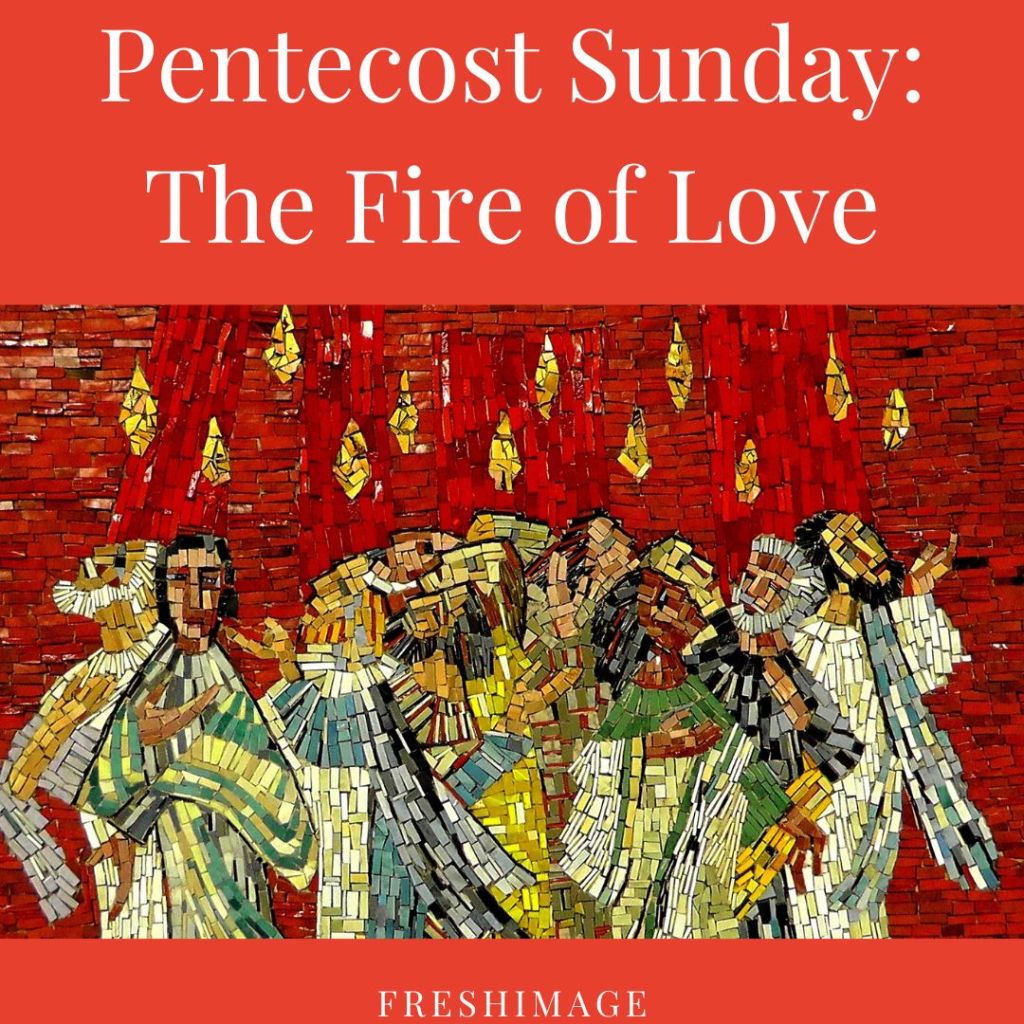Pentecost, Love, and Us ~ The Rt Rev Michael Beckett, OPI

Well, Y’all….this is it. Today marks the end of the Easter Season. And yes, I can see the confused looks on your faces and hear the “Huhs?” you’re exclaiming, coz, you know, the Easter Bunny has already gone back to his Easter Basket Factory to start his process all over again, we’ve finally found that one (now smelly and rotten) Easter Egg we couldn’t find, and Jesus has done been raised from the dead and ascended into Heaven. So what gives here? Imma tell ya.
Today is Pentecost. Today we celebrate that day long ago when the disciples were all hanging out together wondering what in the world they were posta be doing, when, according to The Good Book, suddenly there came from the sky a noise like a strong driving wind, and it filled the entire house in which they were. Then there appeared to them tongues as of fire, which parted and came to rest on each one of them.
And they were all filled with the Holy Spirit and began to speak in different tongues, as the Spirit enabled them to proclaim.
Now there were devout Jews from every nation under heaven staying in Jerusalem. At this sound, they gathered in a large crowd,
but they were confused because each one heard them speaking in his own language. They were astounded, and in amazement they asked,
“Are not all these people who are speaking Galileans? Then how does each of us hear them in his native language?
Well what’s up with that? Let’s back up just a hair first. Remember a few days ago, during the Ascension when Jesus did that whole disappearing into the clouds thing? Right before that, he said to his disciples, he said, “As the Father has sent me, so I send you.” And when he had said this, he breathed on them and said to them, “Receive the Holy Spirit.” And BAM! The disciples (and we) were given a job to do. We were told in no uncertain terms to go hither and yon and tell folks about Jesus and his message to the world, and the lucky disciples were given the ability to do just that, to go and preach so that folks could understand what the heck they were saying. (This would have been awesome for my French classes, but I digress.)
So reckon wonder what does all this mean for us today in the here and now? Well, first of all, if we’re supposed to go all over the place preaching what Jesus wanted us to preach, before we do anything else, we gotta know what it is we’re preaching. The whole central tenet of Jesus’s message, before anything else was love. Love first, love last, love period. Us having the courage to step out from wherever it is we are and say, in every language and to all people, “God loves you, I love you, and how can we help you?” Pentecost reminds us that we are the only Bible some folks will ever read. Pentecost reminds us that we are the only Jesus some folks will ever see. How do we put that love into action? Again, Jesus tells us in Matthew 25 to feed the hungry, house the unhoused, and make the world a better, more loving place. Jesus did NOT tell us to crack on someone’s skin color, sexual orientation, gender identity, nationality, body type, political affiliation, or any other perceived difference. Jesus told us to love. I’m not a big fan of Paul, but he certainly got it right when he wrote “love is patient, love is kind. Love is gentle. Love is longsuffering.” Heck, even the Beatles had it right when they sang, “All ya need is love.”
Now there ya have it. I’m gonna end this with the words of St. Teresa of Avila:
Christ has no body but yours,
No hands, no feet on earth but yours,
Yours are the eyes with which he looks
Compassion on this world,
Yours are the feet with which he walks to do good,
Yours are the hands, with which he blesses all the world.
Yours are the hands, yours are the feet,
Yours are the eyes, you are his body.
Christ has no body now but yours,
No hands, no feet on earth but yours,
Yours are the eyes with which he looks
compassion on this world.
Christ has no body now on earth but yours.
Amen.











You must be logged in to post a comment.